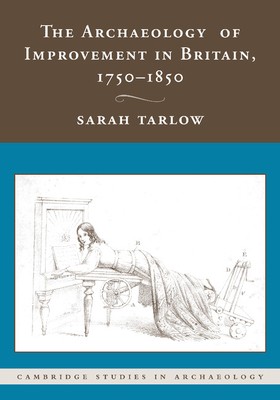
- We will send in 10–14 business days.
- Author: Sarah Tarlow
- Publisher: Cambridge University Press
- ISBN-10: 110740729X
- ISBN-13: 9781107407299
- Format: 17.8 x 25.4 x 1.3 cm, minkšti viršeliai
- Language: English
- SAVE -10% with code: EXTRA
The Archaeology of Improvement in Britain, 1750-1850 (e-book) (used book) | bookbook.eu
Reviews
Description
In this innovative 2007 study, Sarah Tarlow shows how the archaeology of this period manifests a widespread and cross-cutting ethic of improvement. Theoretically informed and drawn from primary and secondary sources in a range of disciplines, the author considers agriculture and the rural environment, towns, and buildings such as working-class housing and institutions of reform. From bleach baths to window glass, rubbish pits to tea wares, the material culture of the period reflects a particular set of values and aspirations. Tarlow examines the philosophical and historical background to the notion of improvement and demonstrates how this concept is a useful lens through which to examine the material culture of later historical Britain.
EXTRA 10 % discount with code: EXTRA
The promotion ends in 23d.10:11:28
The discount code is valid when purchasing from 10 €. Discounts do not stack.
- Author: Sarah Tarlow
- Publisher: Cambridge University Press
- ISBN-10: 110740729X
- ISBN-13: 9781107407299
- Format: 17.8 x 25.4 x 1.3 cm, minkšti viršeliai
- Language: English English
In this innovative 2007 study, Sarah Tarlow shows how the archaeology of this period manifests a widespread and cross-cutting ethic of improvement. Theoretically informed and drawn from primary and secondary sources in a range of disciplines, the author considers agriculture and the rural environment, towns, and buildings such as working-class housing and institutions of reform. From bleach baths to window glass, rubbish pits to tea wares, the material culture of the period reflects a particular set of values and aspirations. Tarlow examines the philosophical and historical background to the notion of improvement and demonstrates how this concept is a useful lens through which to examine the material culture of later historical Britain.


Reviews